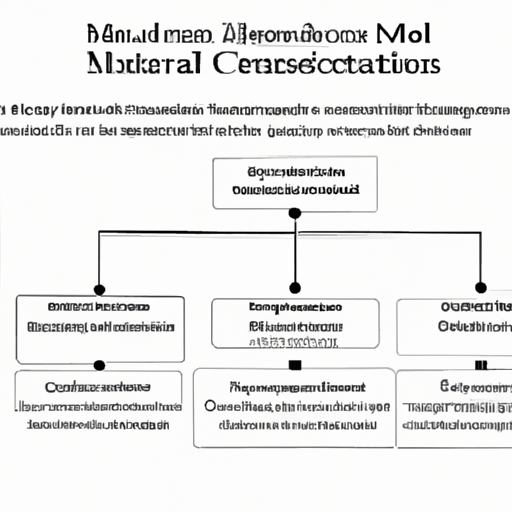MBA Course Structure: A Comprehensive Guide to Curriculum, Specializations, and Learning Outcomes

Understanding the MBA Course Structure
The MBA course structure is meticulously designed to equip students with a robust foundation in business management, strategic thinking, and leadership. Whether you choose a full-time, part-time, or executive MBA, the curriculum is engineered to create versatile leaders who can thrive in the dynamic world of business. In this article, we’ll break down the typical MBA curriculum, its core modules, elective subjects, and how specialization pathways can shape your future career.
Key Components of an MBA Curriculum
An MBA programme typically comprises a blend of theoretical knowledge and practical skills. The course structure is generally divided into the following components:
- Core Courses: Fundamental subjects that provide a comprehensive overview of business functions such as finance, marketing, operations, and human resources.
- Electives & Specializations: Customizable options allowing students to focus on specific industries or business functions.
- Capstone Projects: Real-world business projects or consulting assignments to apply classroom learning in practical scenarios.
- Internships: Hands-on experience gained via placements in leading organizations.
- Workshops & Seminars: Interactive sessions aimed at developing soft skills and industry insights.
Core Modules in MBA Programs
The core modules form the backbone of the MBA degree structure. These foundational courses ensure that every student has a solid grounding in essential business practices, regardless of their previous background. Common core subjects include:
| Subject | Description |
|---|---|
| Accounting for Managers | Understanding financial statements, budgeting, and decision-making based on accounting information. |
| Marketing Management | Principles of market research, product development, branding, and digital marketing strategies. |
| Operations Management | Optimizing business processes, supply chain management, and quality control. |
| Organizational Behaviour | Leadership, motivation, team dynamics, and workplace culture. |
| Managerial Economics | Micro and macroeconomic principles for business decision-making. |
| Corporate Finance | Investment analysis, capital structure, and risk management. |
| Business Strategy | Competitive analysis, strategic planning, and implementation. |
Electives and MBA Specializations
After completing the core modules, students can tailor their MBA course structure by selecting electives or opting for a specialization. This flexibility allows for in-depth knowledge in areas such as:
- Finance: Investment banking, portfolio management, financial markets.
- Marketing: Digital marketing, consumer behaviour, brand management.
- Operations & Supply Chain: Logistics, procurement, project management.
- Human Resource Management: Talent acquisition, organizational development, HR analytics.
- Entrepreneurship: New venture creation, innovation management, startup financing.
- Information Technology Management: Business analytics, technology strategy, information systems.
Capstone Projects, Internships, and Experiential Learning
A distinctive feature of the MBA degree structure is the emphasis on experiential learning. Most programs incorporate:
- Capstone Projects: These culminating projects challenge students to solve real business problems for companies or startups.
- Internships: Gaining practical exposure in leading firms, applying theoretical concepts to real-world scenarios.
- Industry Workshops: Specialized training in negotiation, leadership, or business analytics.
This hands-on approach is designed to bridge the gap between academic learning and professional practice, enhancing employability and practical skills.
Learning Outcomes and Career Prospects
The structured MBA syllabus aims to develop a wide range of competencies, including:
- Strategic decision-making
- Analytical and critical thinking
- Leadership and team management
- Effective communication and negotiation
- Entrepreneurial mindset
Graduates are well-prepared for diverse roles such as business analyst, marketing manager, financial consultant, operations director, or even as founders of their own startups. The curriculum’s flexibility ensures you can align your studies with career goals in a variety of sectors, from technology and finance to healthcare and consulting.
Typical MBA Course Structure Timeline
While the mba course structure can vary by institution and program type, a typical two-year MBA is structured as follows:
Year 1
- Semester 1: Core courses in management, economics, accounting, and organizational behaviour.
- Semester 2: Advanced core modules and first set of electives.
Year 2
- Semester 3: Specialized electives, workshops, and project work.
- Semester 4: Capstone project, internship, and final assessments.
LSI Keywords and Related Concepts
When researching or comparing MBA programs, you may encounter related terms such as mba curriculum structure, mba subjects list, mba syllabus, mba modules, and business school course plan. All these concepts tie back to the overarching design of MBA education, aimed at producing agile, knowledgeable, and ethical business leaders.
Conclusion: Designing Your MBA Journey
Choosing the right MBA course structure is crucial in shaping your management career. Consider the balance between core courses, electives, and experiential projects to match your professional aspirations. Whether you’re aiming for a corporate leadership role, launching a startup, or transitioning careers, a well-structured MBA program offers the knowledge, skills, and networks to achieve your ambitions.


